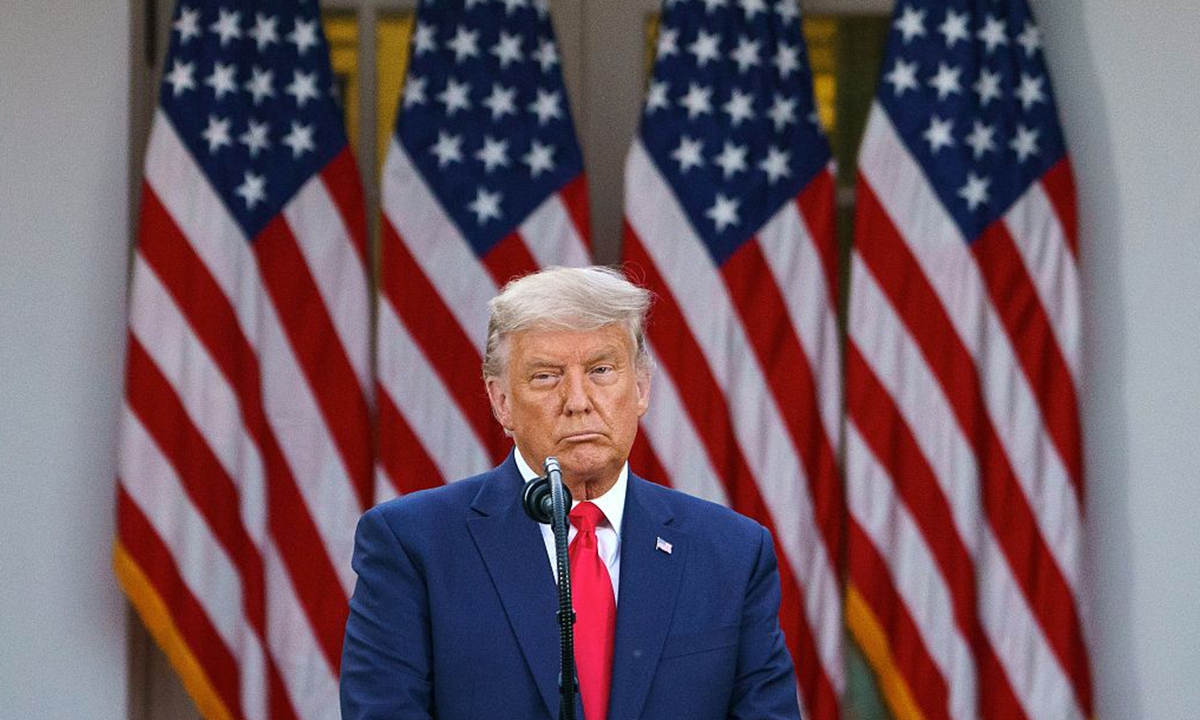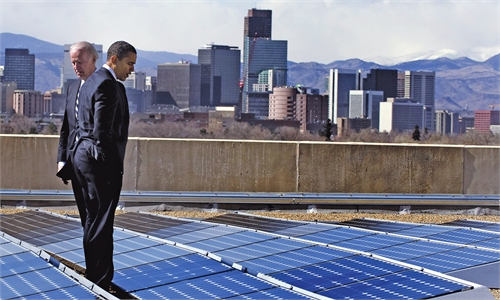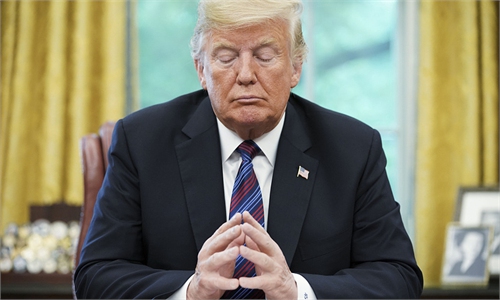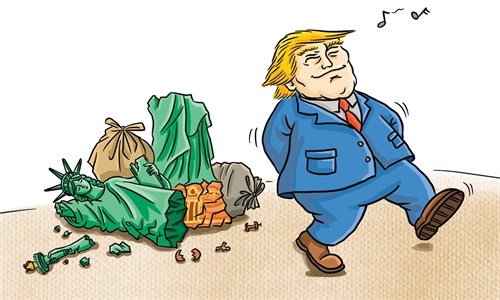
Trump Photo:VCG
Trump's greatest diplomatic legacy is not that he has redefined China on the international stage, but that the world has redefined the US' international prestige and image. This is a new understanding not just for China or some third-world countries, but for many US allies as well. The world is beginning to see US selfishness, as it ignores its international credibility, abandons its international commitments, unilaterally imposes sanctions, and plays international treaties and obligations as a trifle in the name of "America First." The US image and rhetoric as a great power, which it has painstakingly built up over decades, may be increasingly questioned. The China policy is only one part of Trump's foreign policy.
There is no denying that Trump's China policy has caused a very bad impact, but it is not necessarily a total failure. From the perspective of the US, Trump has succeeded in instigating and shaping a new perception of China, transforming it from a "partner" into an "adversary." It's a perception that some people in the US have wanted to build for years, but have never established. Trump has done it. That perception is unlikely to be reversed, and may become worse after Biden takes office. But this image of China has not served the US well. Trump's China policy may not bite the ground, but has caused destruction to both sides.
What is "Trumpism"? Is it the "America First"? Or imposing unilateral sanctions? Or withdrawing from international institutions? To be honest, many of Biden's policies, especially on China, will be similar to Trump's, though there will be some areas blending back.
There are both advantages and disadvantages of Trump's legacy. He once again educated the Chinese people. He destroyed many myths about the US.
But from a win-win point of view, Trump has damaged the China-US relationship and made it difficult to repair in the short term. Stable cooperation is in China's interest. A broken China-US relationship is bad for China and harms the US as well.
China has learned three lessons from Trump's presidency. First, we should not have too many expectations or unrealistic illusions about future China-US relations. China has developed this far, and there is a bipartisan consensus in the US to keep containing China. Trump has put this fact in front of the Chinese people in an unexpected way, and Biden may do even worse than Trump in the future.
Second, we need to reflect on our empirical judgment on China-US relations. We used to believe that business cooperation is the propeller and cornerstone for developing state-to-state relations, and cultural exchanges would not be persecuted. Facts have proven that these empirical judgments were wrong.
Third, it seems that we should be prepared for China-US relations to get worse. We can no longer rely on the international supply chain or fair trade rules or the goodwill of other countries to deal with our shortcomings exposed in China-US tensions, such as stranglehold problems in technology. Instead, we need to rely on our own efforts.
The author is deputy director of the Center for American Studies at Fudan University. opinion@globaltimes.com.cn



